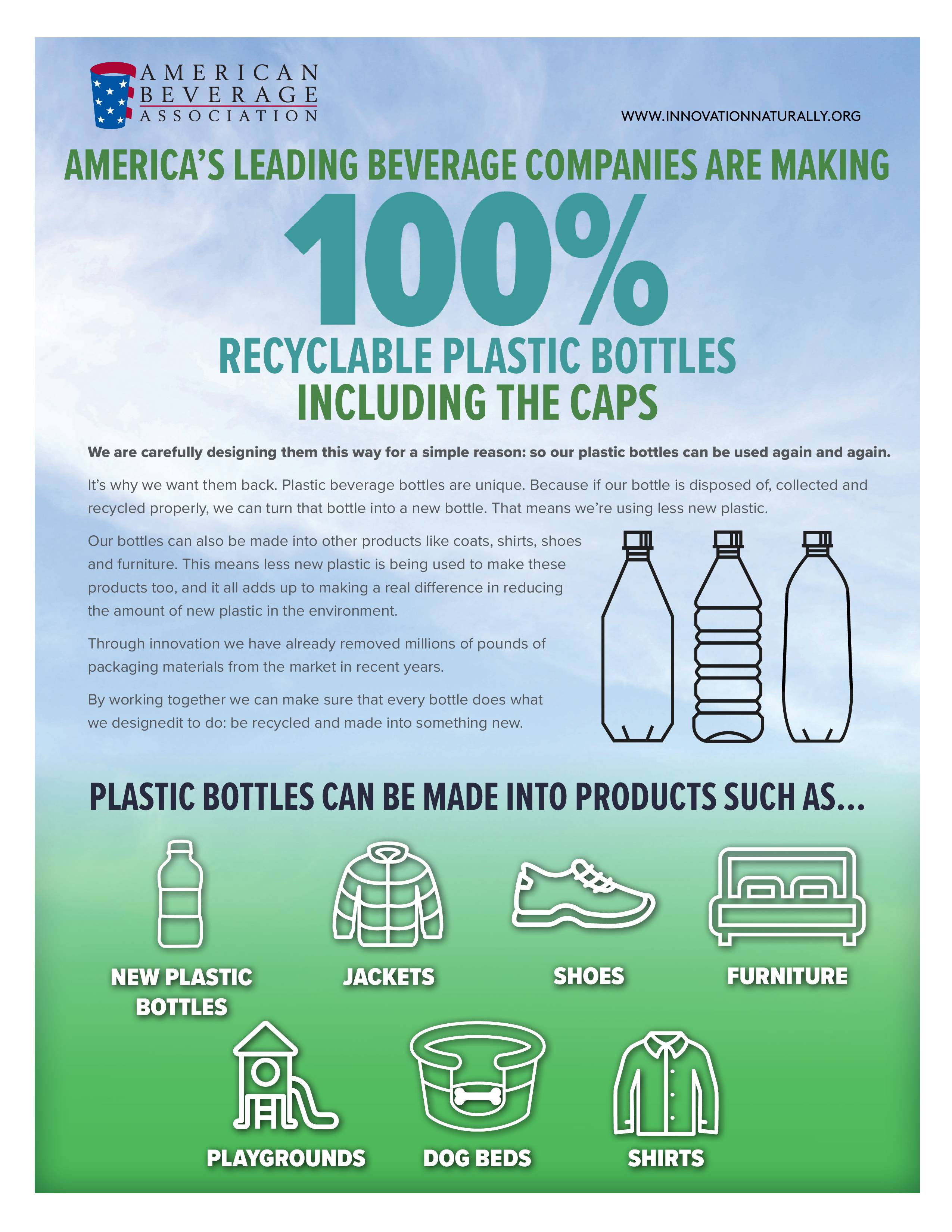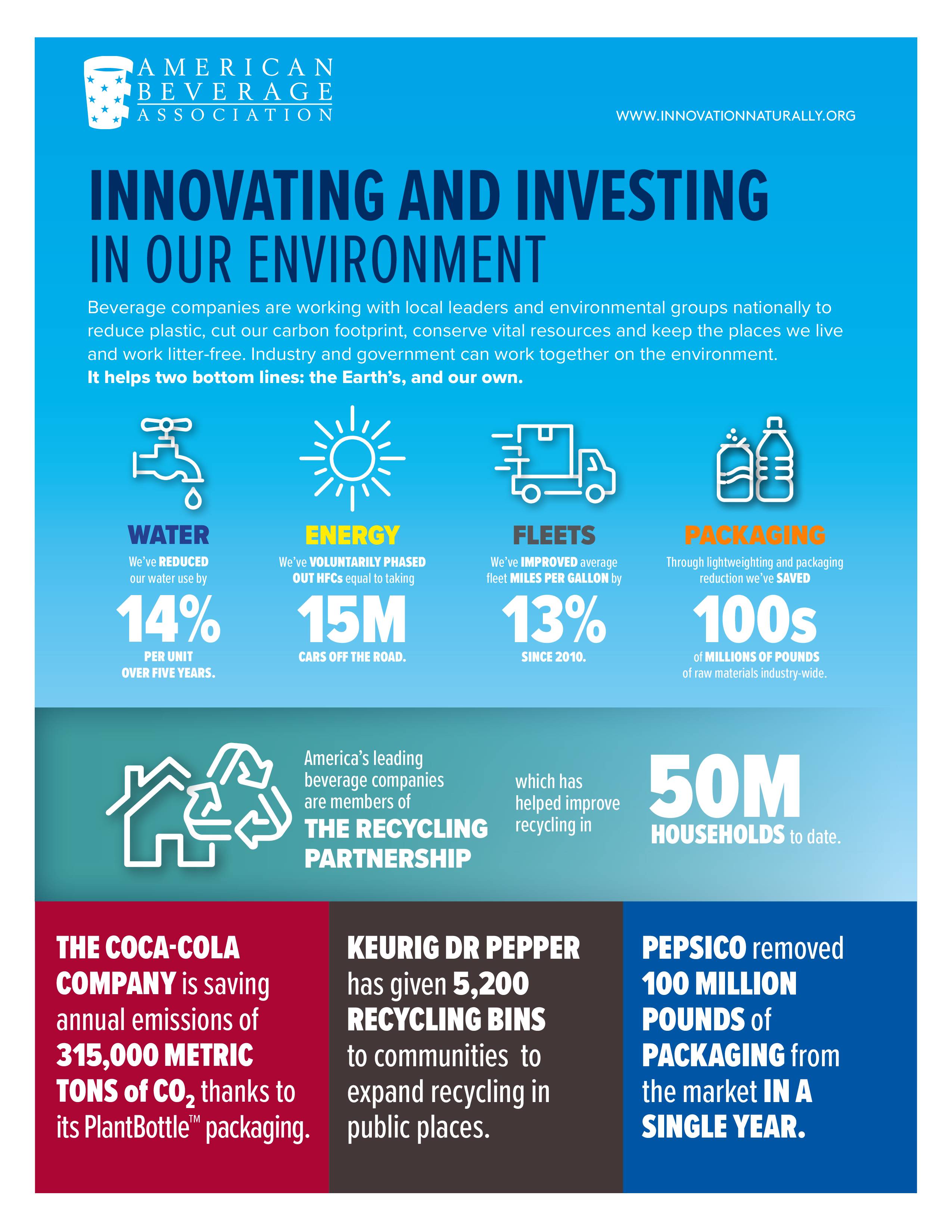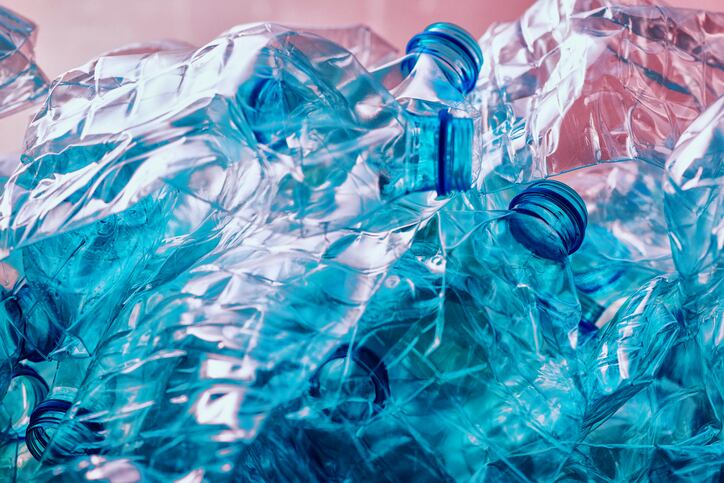The American Beverage Association (ABA) brought together beverage leaders to discuss sustainability solutions, including reducing the industry’s use of new plastic and investing in recycling infrastructure across the country.
They announced a joint effort, the Every Bottle Back initiative, that will invest $100m to improve sorting, processing and collection of discarded plastic bottles in four key US regions. It will also remind consumers that PET bottles are 100% recyclable by introducing pack label messaging beginning in late 2020.

Recyclable, compostable, biodegradable
Beverage companies have determined they need to balance consumer convenience with environmental responsibility. ABA said the plastic material PET has been in high demand because its 100% recyclability means it can easily be remade into new plastic bottles, shirts, shoes, coats, park benches and playground equipment.
US beverage companies have already saved hundreds of millions of pounds of raw materials through lightweighting and packaging reduction, according to ABA. The Coca-Cola Company designed the PlantBottle, which has prevented 150,000 metric tons of CO2 emissions in North America.
Keurig Dr Pepper plans to have 100% recyclable or compostable packaging and use 30% post-consumer recycled content across its portfolio by 2025. And PepsiCo plans to make 100% of its packaging recyclable, compostable or biodegradable by 2025.
Katherine Lugar, president and CEO of the ABA, said “Our industry recognizes the serious need to reduce new plastic in our environment, and we want to do our part to lead with innovative solutions. Our bottles are designed to be remade, and that is why this program is so important.
"We are excited to partner with the leading environmental and recycling organizations to build a circular system for the production, use, recovery and remaking of our bottles. Every Bottle Back will ensure that our plastic bottles are recovered after use and remade into new bottles, so we can reduce the amount of new plastic used to bring our beverages to market.”
“This is an important step for our industry, and it builds on our ongoing commitment to protecting the environment for generations to come.”
Fixing a broken plastic material system

The ABA outlined goals in the announcement of the initiative, first measuring industry progress in reducing the use of new plastic in the US. They will use the ReSource: Plastic accounting methodology from WWF to “track on the collective progress made on executing strategies to reduce the use of new plastic as well as a resource in identifying additional interventions.”
ABA will also improve the availability of recycled plastic by directing the equivalent of $400m to The Recycling Partnership and Closed Loop Partners through a new $100m industry fund that will be matched by other grants and investors.
Consumer education and community outreach will be a big part of the initiative, to help consumers understand the value of recyclable bottles. ABA cited a poll from Public Opinion Strategies that found nearly half of US consumers were unaware that America’s leading beverage companies are already making bottles that are 100% recyclable, including the caps.
On-pack label messaging and social media campaigns will lead this, promoting recycling and its benefits in the circular economy.
Sheila Bonini, senior VP of private sector engagement at WWF, said “Reaching our goal of No Plastic in Nature by 2030 will only happen if business, governments and the NGO community work together to fix a broken plastic material system.
“ABA is driving this sense of collaboration within the beverage industry to address one critical piece within this system, which is PET recycling in the US.”
Jim Dinkins, president of Coca-Cola North America, said “We know we cannot do this alone and, in order to meet our goals and those of our industry, we need to work in partnership to drive collective action to ensure our bottles have second, third and fourth lives through continued recycling and re-use.”

